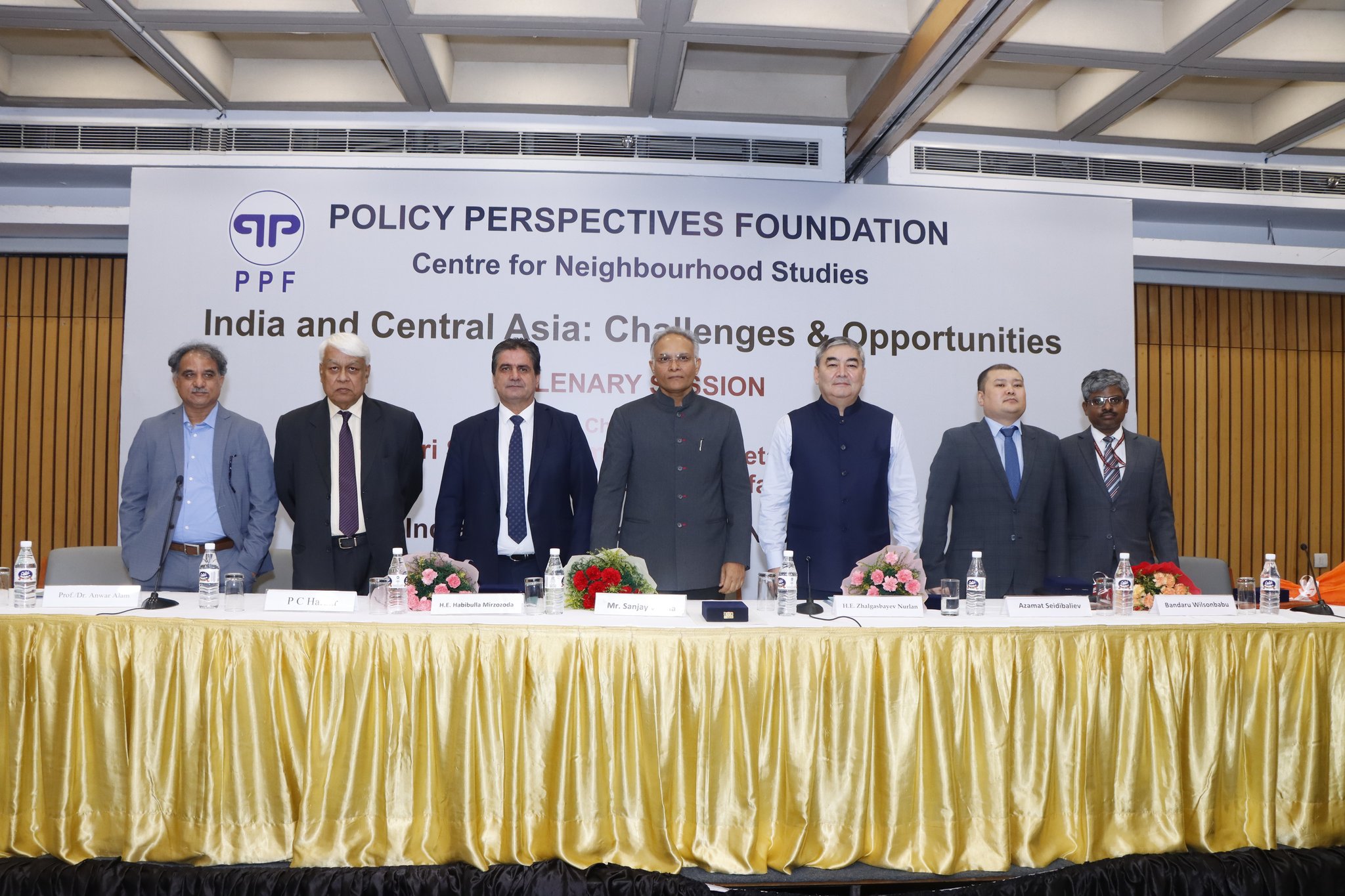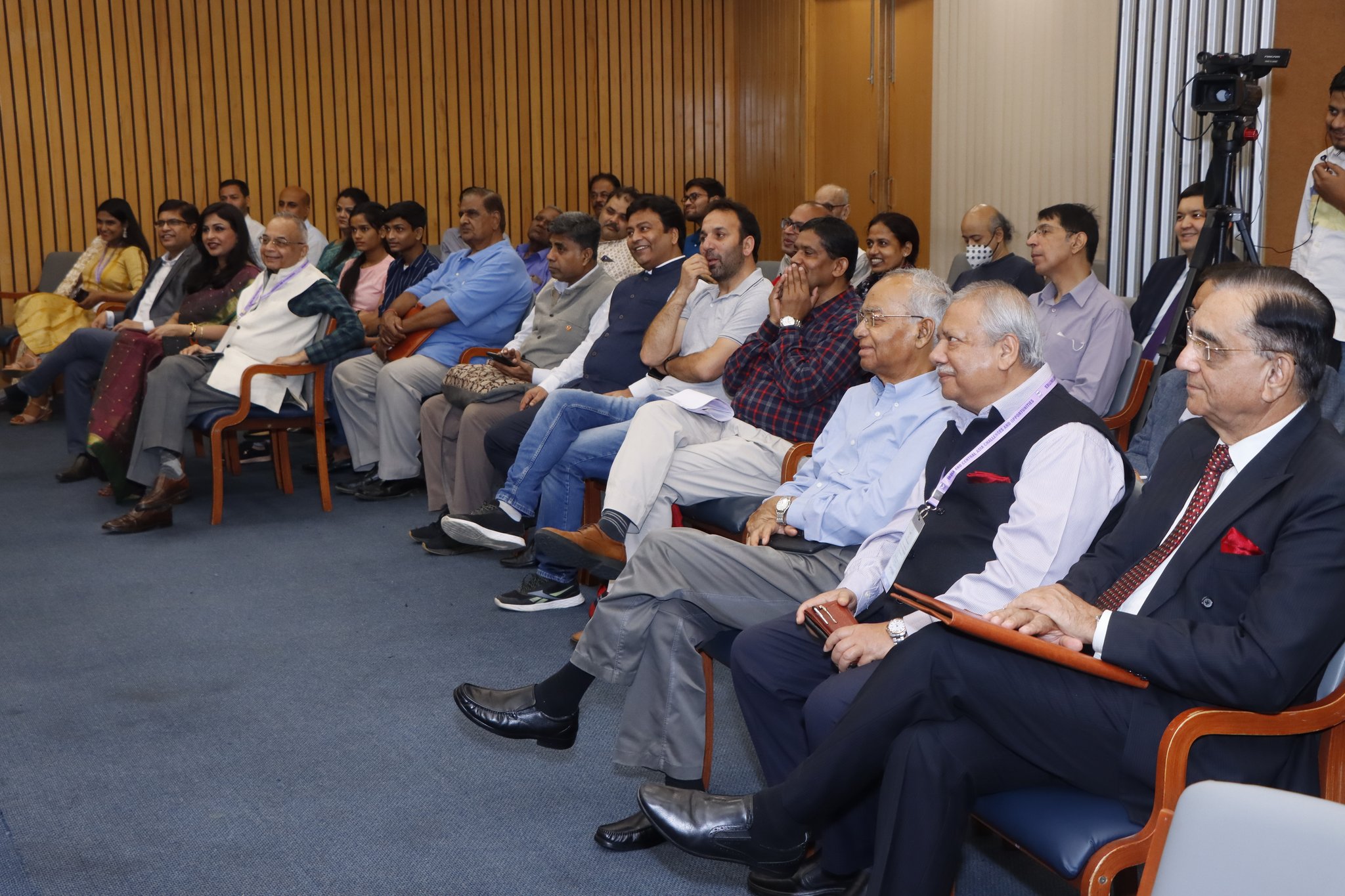India will remain a committed and reliable partner for the Central Asian countries in their developmental journey. This statement came from Sanjay Verma, Secretary (West) of the Indian Ministry of External Affairs during his remarks at the International Seminar on “India and Central Asia: Challenges and Opportunities” on Thursday, 29 Sep.
The event was hosted by the Policy Perspectives Foundation, New Delhi, from 27 to 29 September 2022.
In his speech Sanjay Verma provided fresh information on future perspectives and current situation in Indian-Central Asian relations:
“Kazakhstan is the largest Indian trade partner in Central Asia, with bilateral trade amounting to about US$ 2 billion. Indian oil companies are interested in investing in oil projects in Kazakhstan. Kazakhstan has been a major supplier of natural uranium to meet India’s energy needs. Indian companies are open to explore trade and investment opportunities in Kazakhstan in sectors like pharmaceuticals, textiles, automobiles, fertilizers and IT.
India-Kyrgyz trade is about US$ 34 million. Sectors like education, IT, pharmaceuticals, agro-processing and textiles are promising for increasing India’s trade with the Kyrgyz Republic. A MoU for extending US$ 200 million Line of Credit to Kyrgyz Republic is at an advanced stage of finalisation.
India’s trade with Tajikistan is less than US$ 75 million. Indian companies have invested in construction of power plants and power transmission lines and a prominent hotel in Dushanbe. Pharmaceuticals are our biggest exports. Tajikistan also has good capacity in hydroelectricity generation, solar power, tourism, mining and cotton and fruit processing, which could provide opportunities for Indian businesses.
India’s trade with Turkmenistan stands at about US$ 114 million year. India could share its experience in renewable energy, especially in solar energy, with Turkmenistan. The geo-political complexities of the TAPI gas pipeline need to be addressed and the participating companies in the TAPI consortium should work towards business solutions to mitigate various risks.
India had announced US$ 1 bn of Lines of Credit and Buyer’s Credit for Uzbekistan. Projects including highways and other water-related urban infrastructure are under consideration. A bilateral trade target of US$ 1 billion has been set (currently US$ 342 million). Indian companies have strong interests in exports of pharmaceuticals, mechanical equipment, auto parts and services. Uzbekistan could export its fruits and vegetables, fertilizers, juice products, extracts and lubricants to India.”
However, the biggest barrier between India and the Central Asia is the lack of overland connectivity, Verma said.
The International North-South Transport Corridor and promoting the Chabahar Port, the Ashgabat Agreement and TIR Convention are among the key efforts to improve connectivity.
Moreover, the official underscored the vast opportunities for enhancing cooperation between India and Central Asia. One of them is energy sector.
“Turkmenistan is among the top 5 countries of the world in proven reserves of natural gas. Kazakhstan has substantial reserves of crude oil and reserves of natural gas are found in Uzbekistan”, he said underlying that India, being the 3rd largest energy consumer in the world, could become a big buyer for Central Asian energy sources.
At the same time, India ranking 4th globally in terms of installed capacity of renewable energy is ready to share its expertise in harnessing renewable energy with the Central Asian countries.
“Given India’s experience and expertise in the fields of IT, education and healthcare, we have long been involved in the capacity building and human resource development of the Central Asian countries”, told Verma.
According to MEA, 6200 professionals and 1500 students from Central Asia have trained in India under ITEC programme and ICCR scholarships. ///nCa, 1 October 2022

